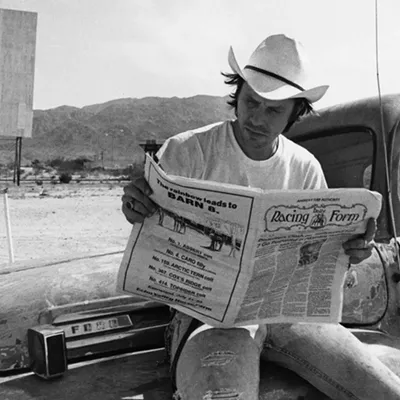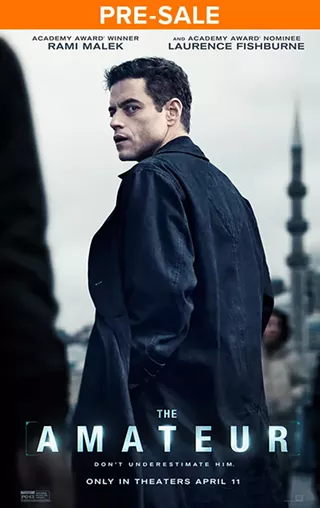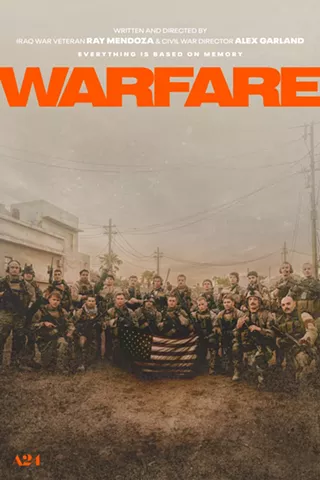But Darjeeling Limited is Anderson's most human film, while still being marked by his penchant for visual complexity and narrative ingenuity. God, that was a pretentious sentence. Well, maybe they'll put it on the box for the DVD release.
In plain English: Darjeeling starts with a nervous-looking Bill Murray running to catch a train that's just pulled out of the station. If he can only get a few more feet ahead, he can throw his bag over the back railing and climb aboard. But the train is gaining distance on him.
Then, a figure appears by his side. It's Adrien Brody, also running to catch the train. The two runners acknowledge each other, but lean, young Brody has an edge over the aging Murray. Brody runs; he leaps; he looks behind him as Murray stumbles back, out of breath.
I really liked this bit, because it's not a metaphor, and it has no simple connection to the rest of the story, but it's so rich that it does add to the general mood of everything that comes after it.
And it's what comes after that makes Darjeeling tick. Brody is Peter Whitman, and he's meeting his brothers Francis (Owen Wilson) and Jack (Jason Schwartzman) for a spiritual journey across northern India. Francis, a controlling businessman, has specially laminated itinerary cards available for his brothers. Which means that somewhere on the train, his assistant has a laminating machine.
Meanwhile, mustachioed lothario Jack is smitten by ravishing hostess Rita (Amara Karan), and the two experience adult love in tiny train antechambers and, more importantly, in their hearts.
Two things should be noted about Anderson: First, he has a style that is now so consistent that it can no longer be considered, by itself, to be a great artistic innovation, since he's used it four times. (I don't think it was developed yet in his first film, Bottle Rocket.) If the style can't take center stage (as he tried to have it do, with mixed results, in The Life Aquatic With Steve Zissou), it can still work for him if he uses it as an unobtrusive element in his larger artistic goal.
He does that successfully with Darjeeling. The story is about the emotional baggage that the brothers carry, and the literal, monogram-embossed baggage that the brothers have inherited from their recently deceased father. As they tote around the ridiculously stylized Louis Vuitton luggage, they also make painful attempts to trust each other, which usually turn into comic attempts at betraying each other.
But! Whereas in previous Anderson movies, the painful relations and ultimate reconciliations were presented in a distant and ironic manner, here, they seem genuine. This is tremendously helped by nuanced performances by Brody and Schwartzman. The former is clearly a serious dramatic actor, and he plays comedy as it should be played: straight. Schwartzman is a little more artificial, but it works, and his pain seems deep.
The weak link is Wilson, who is just a little too sketch-comedy-ish for the more naturalistic manner that this film demands. Whatever: He's comic relief, and if he can't play drama-ball with the big boys, he can at least play comedy-ball with them.
The second thing to note about Anderson is that he has a rep for using nonwhite people solely as exotics. In a movie about three Caucasian brothers who are traveling through India, he'll probably get accused of that again.
But this time, the nonwhite characters are completely rich and realized. Not only is Karan not a simple stereotype; Waris Ahluwalia, who plays her boyfriend and the train's chief steward, is tremendous. Anderson picked a true actor for the role and wrote him a part that becomes increasingly complex in each of his unfortunately brief appearances. It's too bad that the Academy Award for Best Supporting Actor always goes to the Best Unsupporting Showoff, but if there were integrity in the name of the prize, Ahluwalia would be a shoo-in. His formal, professional manner shows just the right amount of seams and cracks to give him emotional depth without going all the way over to angry caricature.
So much goes on in this film that it's impossible to summarize the way the emotional quality builds and how Anderson handles the dual interactions between brothers and cultures, but I think he does both with tremendous sensitivity.
That's somewhat unexpected, given his earlier films, but what's not unexpected is the artful handling of color, framing and editing. Only with Darjeeling, he's surpassed his earlier efforts. The editing is a revelation: Darjeeling frequently cuts ahead three to 10 seconds, creating an eerie effect. And it suddenly, without warning, cuts back a year in time in one of its most thoughtful sequences.
I don't think Darjeeling is as powerful as Rushmore, but I think that in part, that's because Rushmore was the introduction of the then-incredibly novel Anderson style. I do think Darjeeling is more honest than Rushmore, and I hope it represents a new stage in Anderson's work, one where he can quietly develop quieter themes, leaving the explosive emotional confrontations of his earlier work to an earlier period that demanded a bigger bang for its satisfaction. Darjeeling is like a tiny explosion, but it's located directly in the carotid artery that supplies blood to the brain. It's a mini-stroke film, leaving you altered, but still moving.










